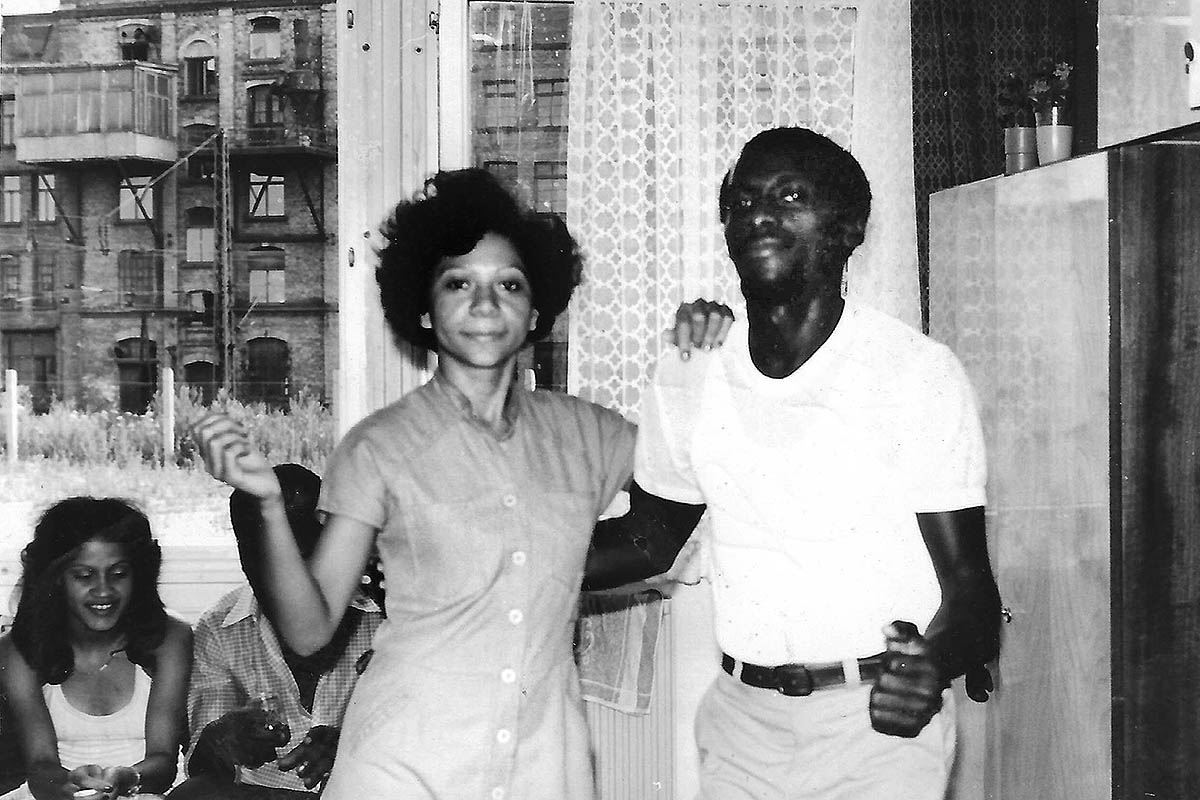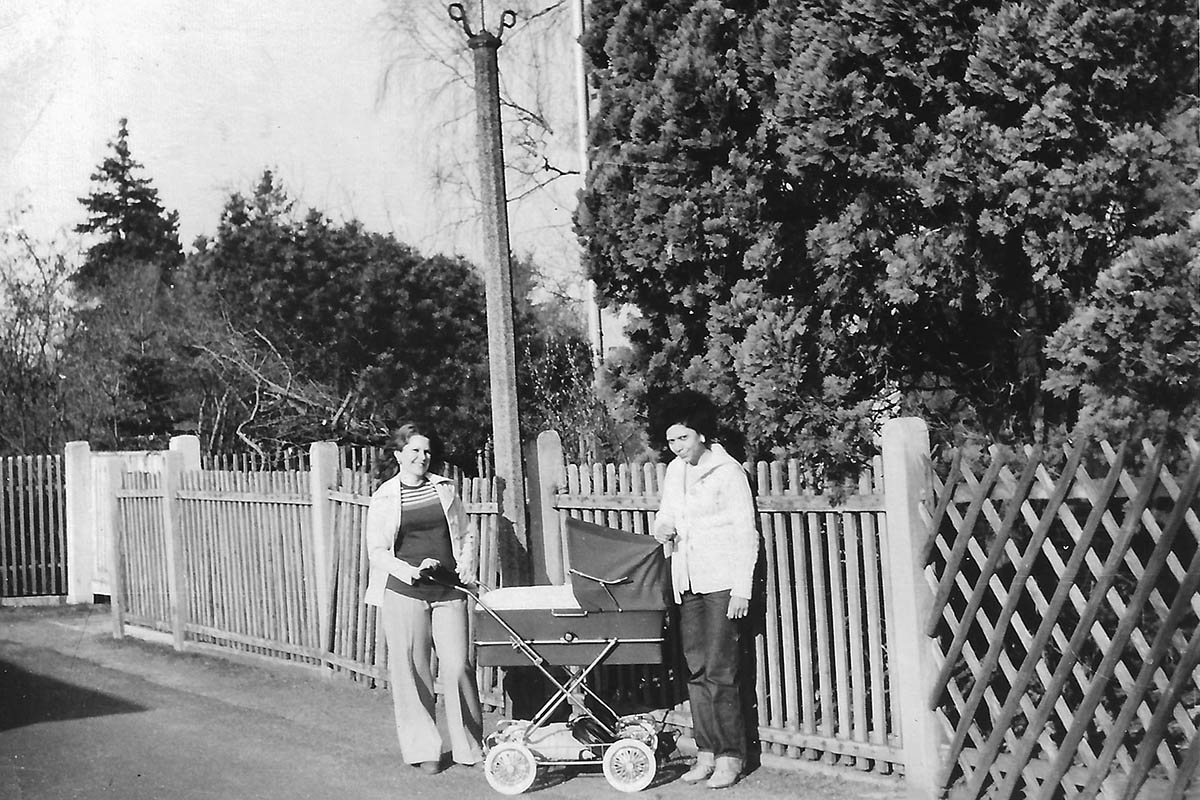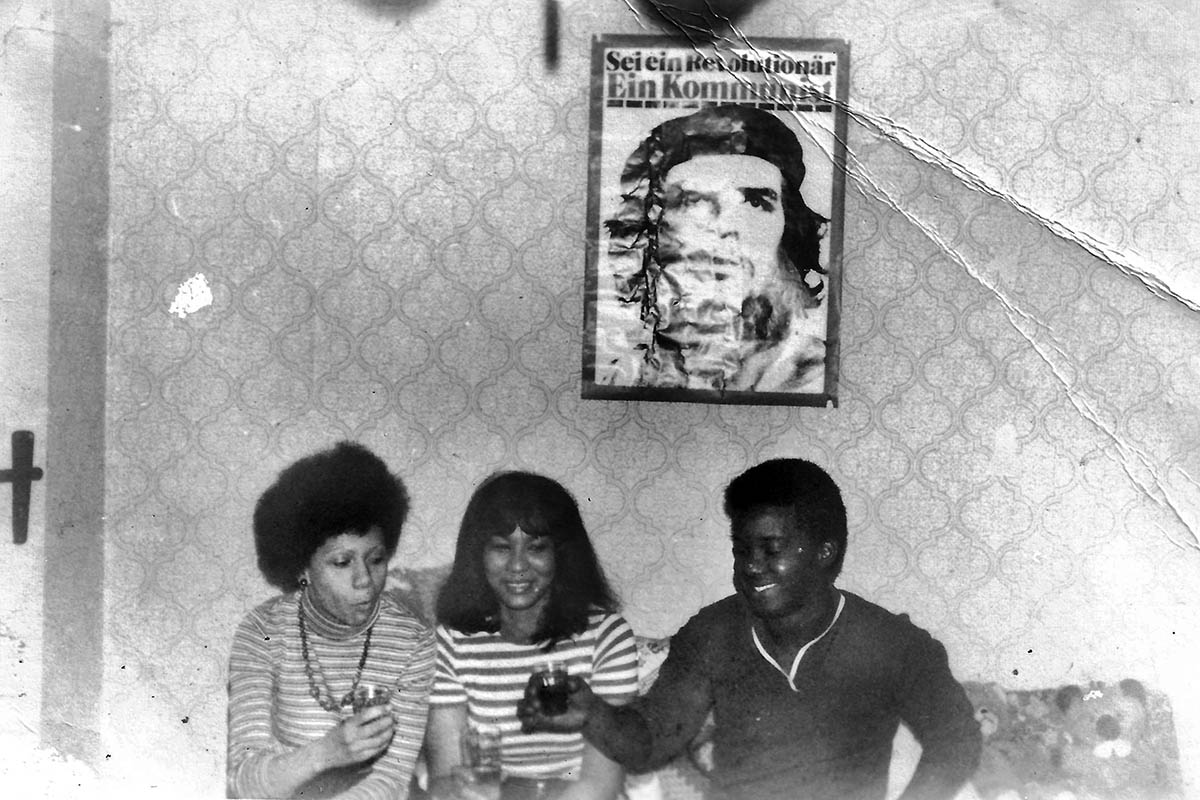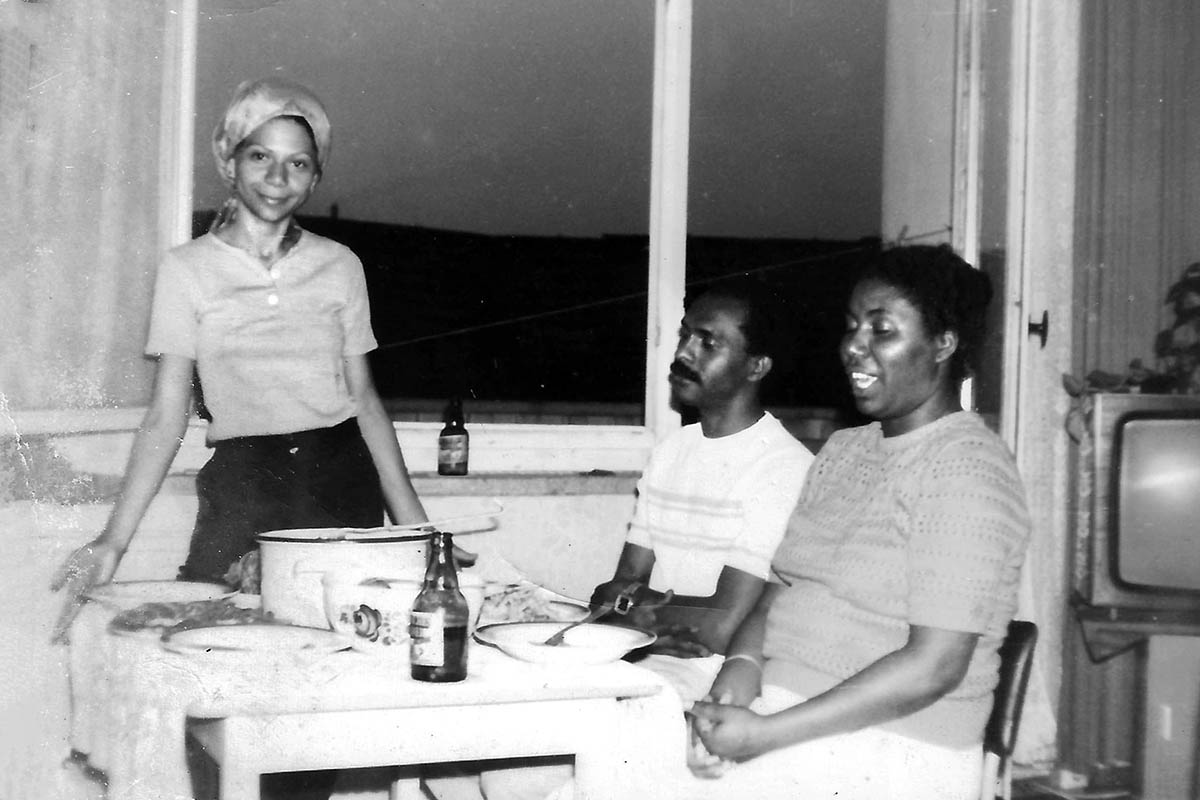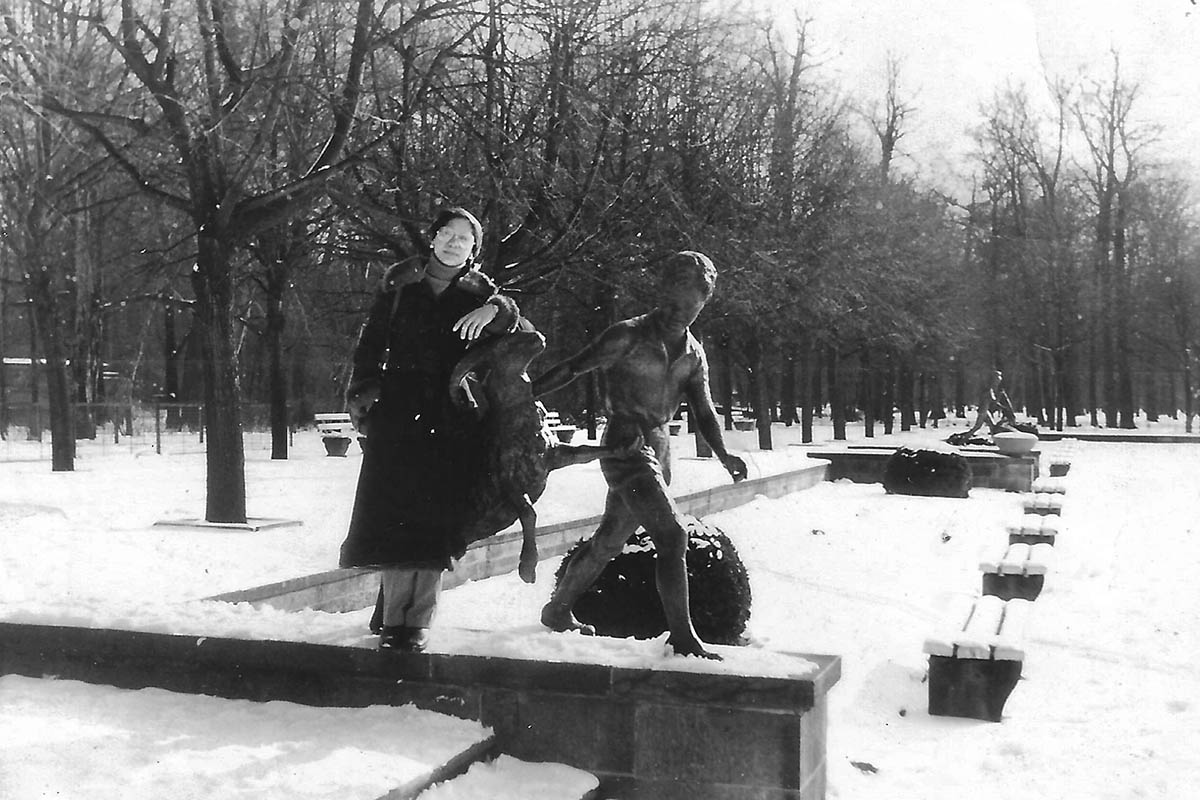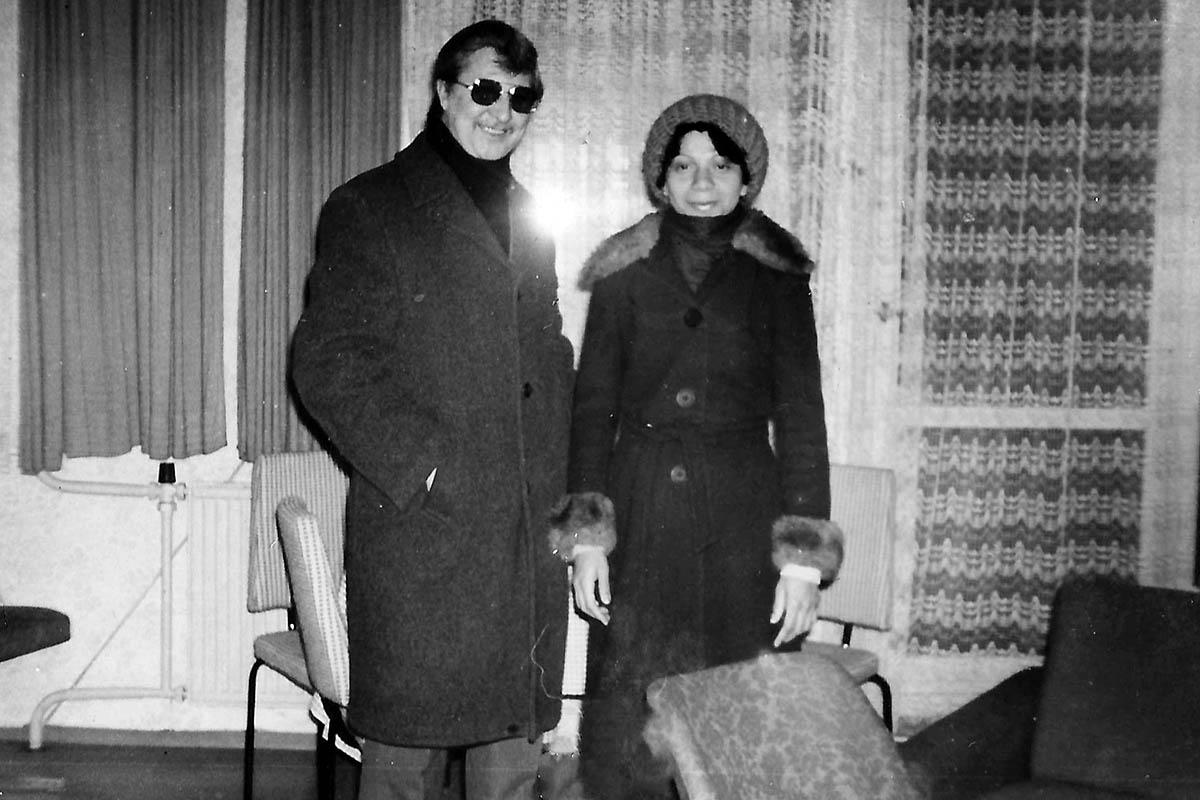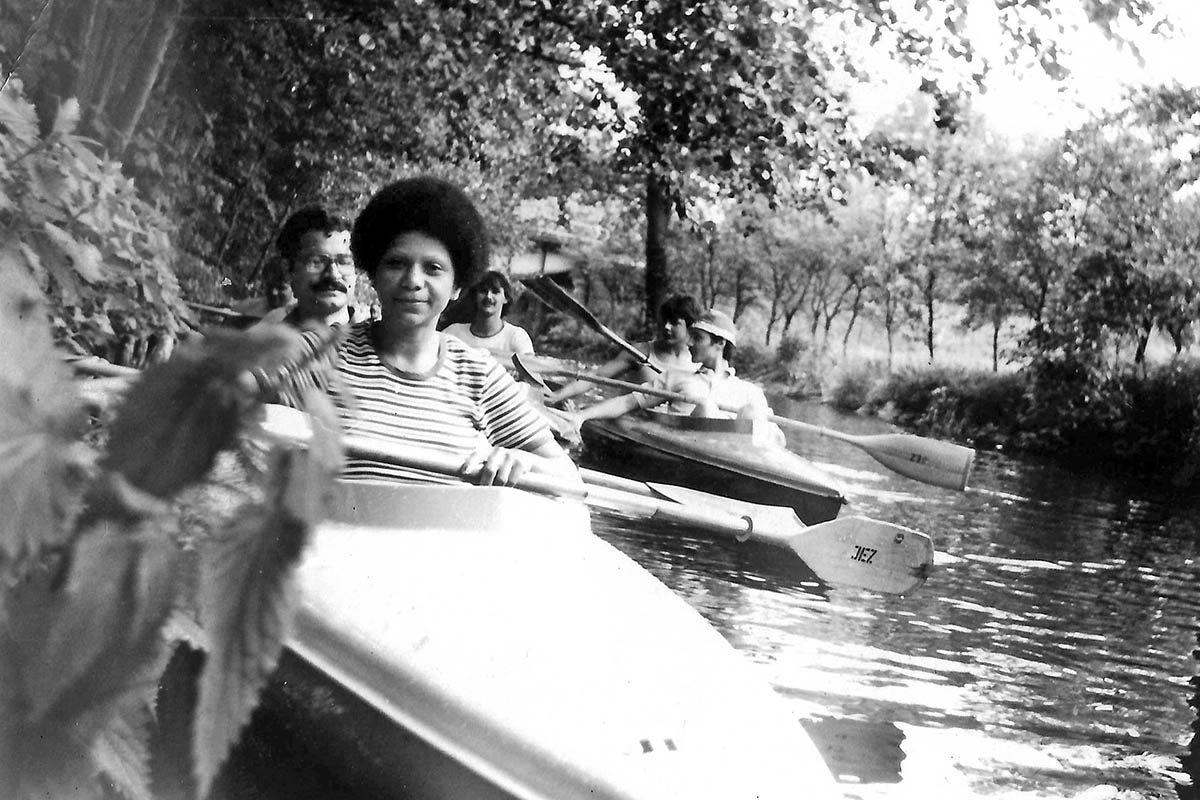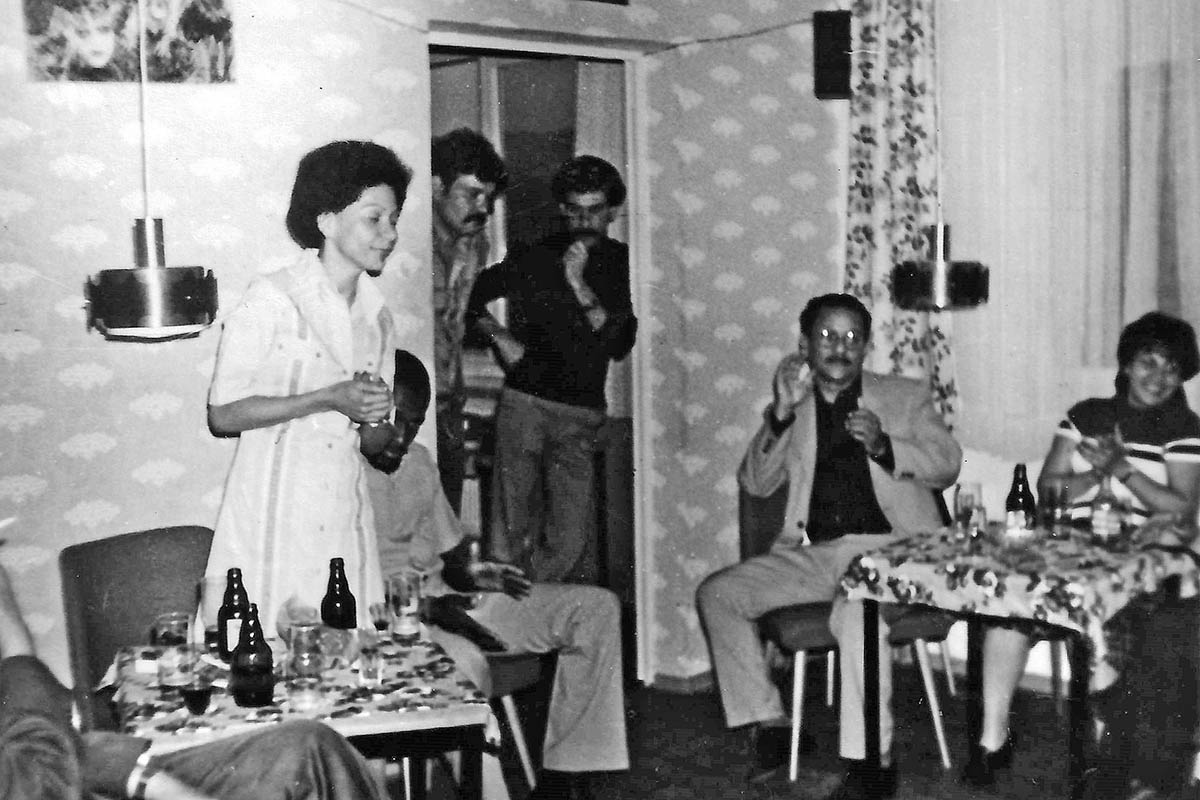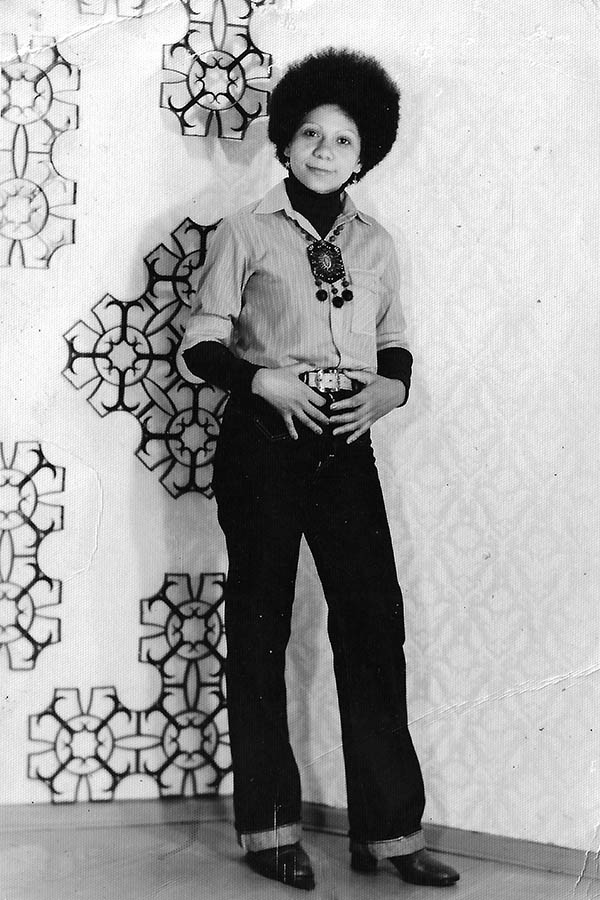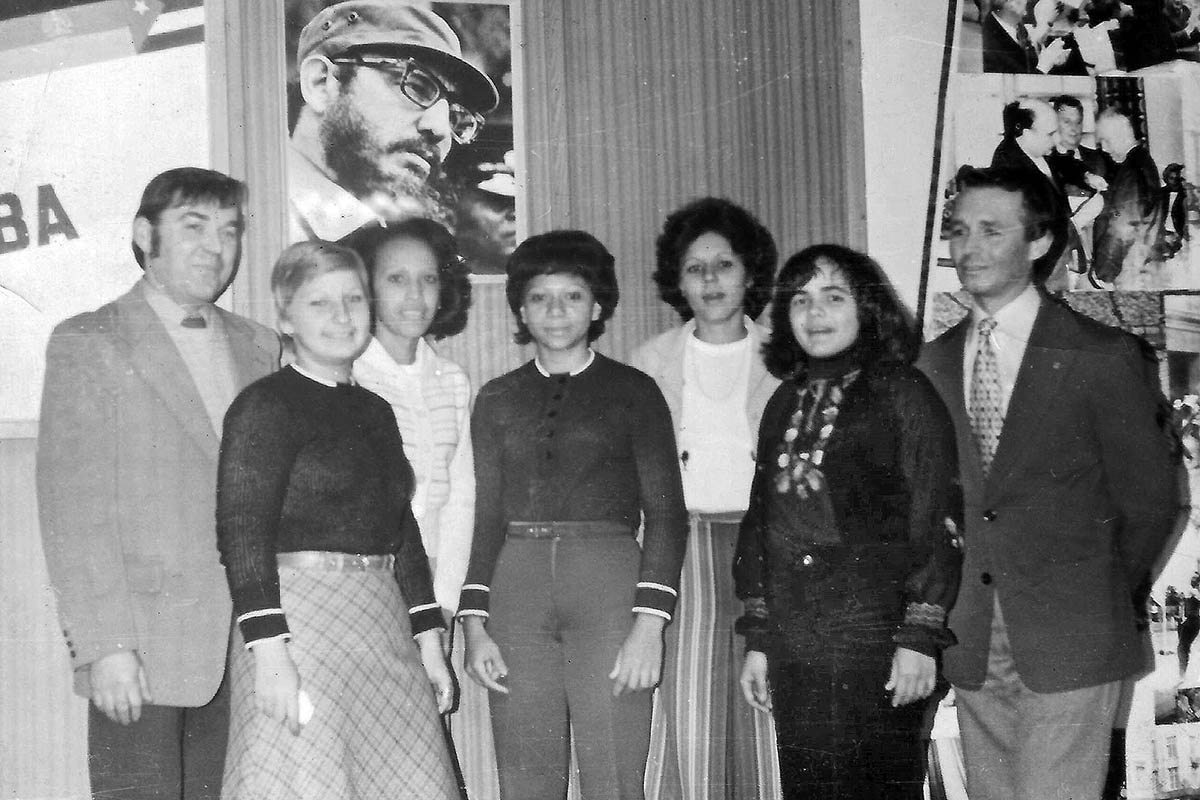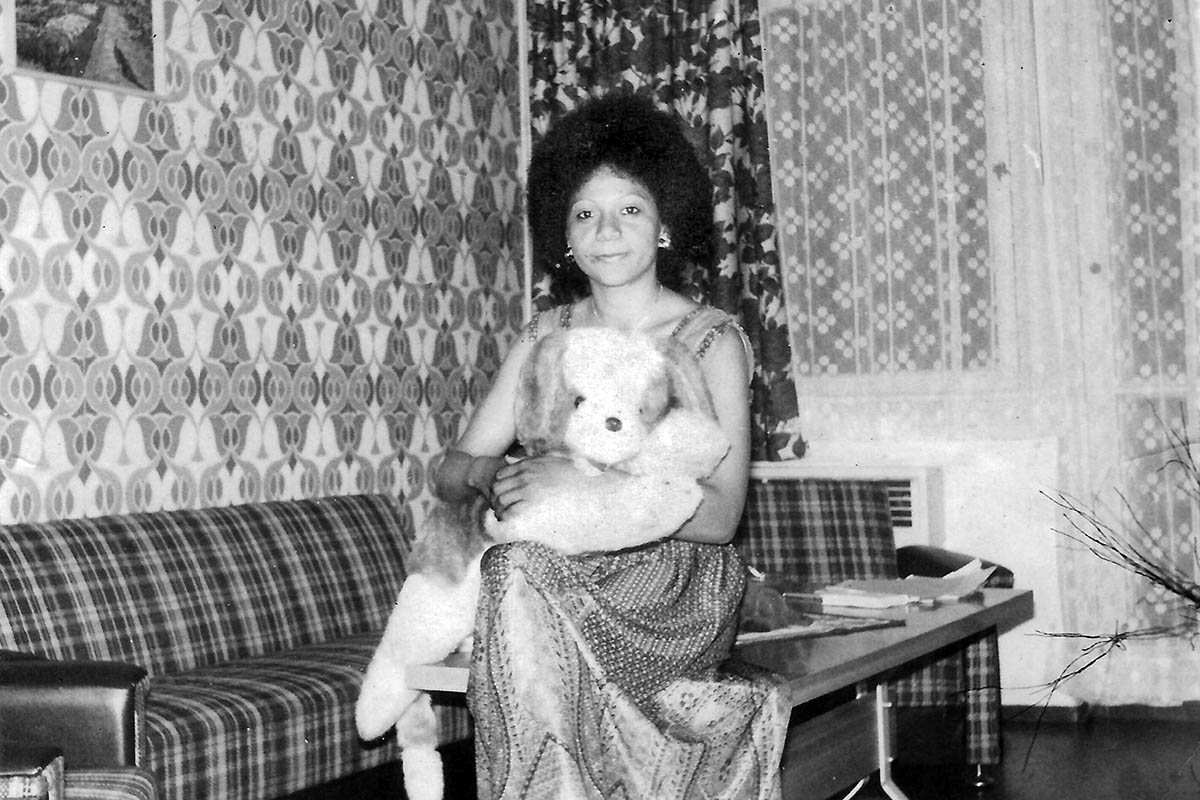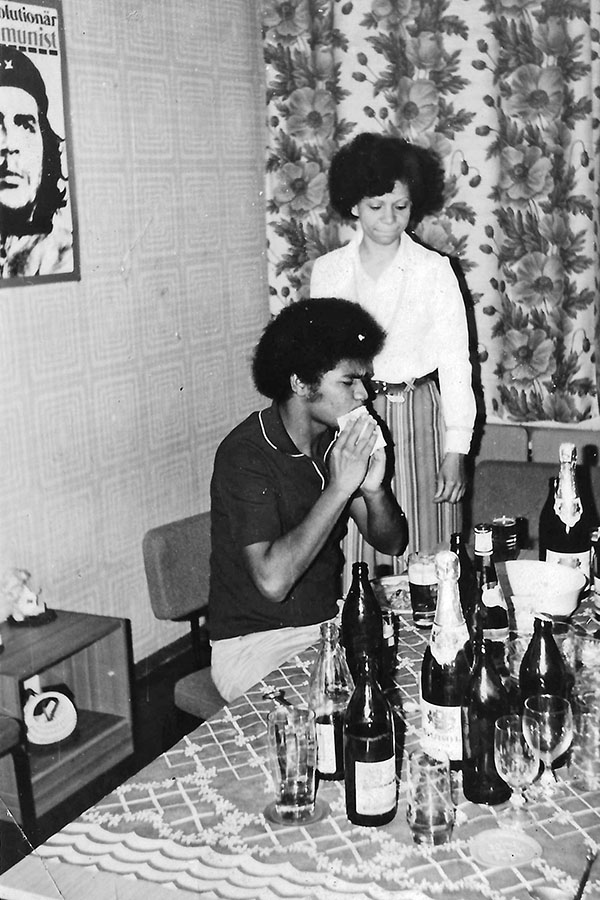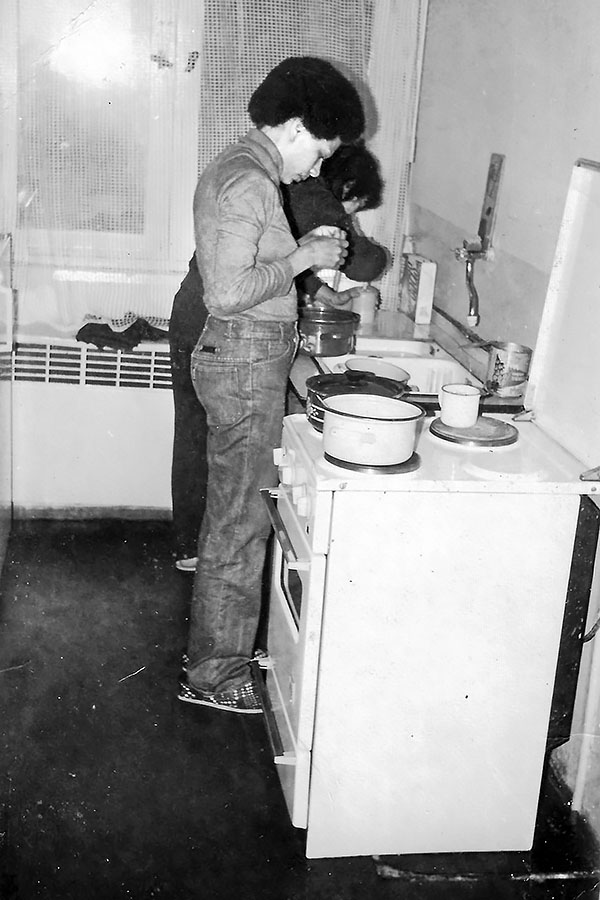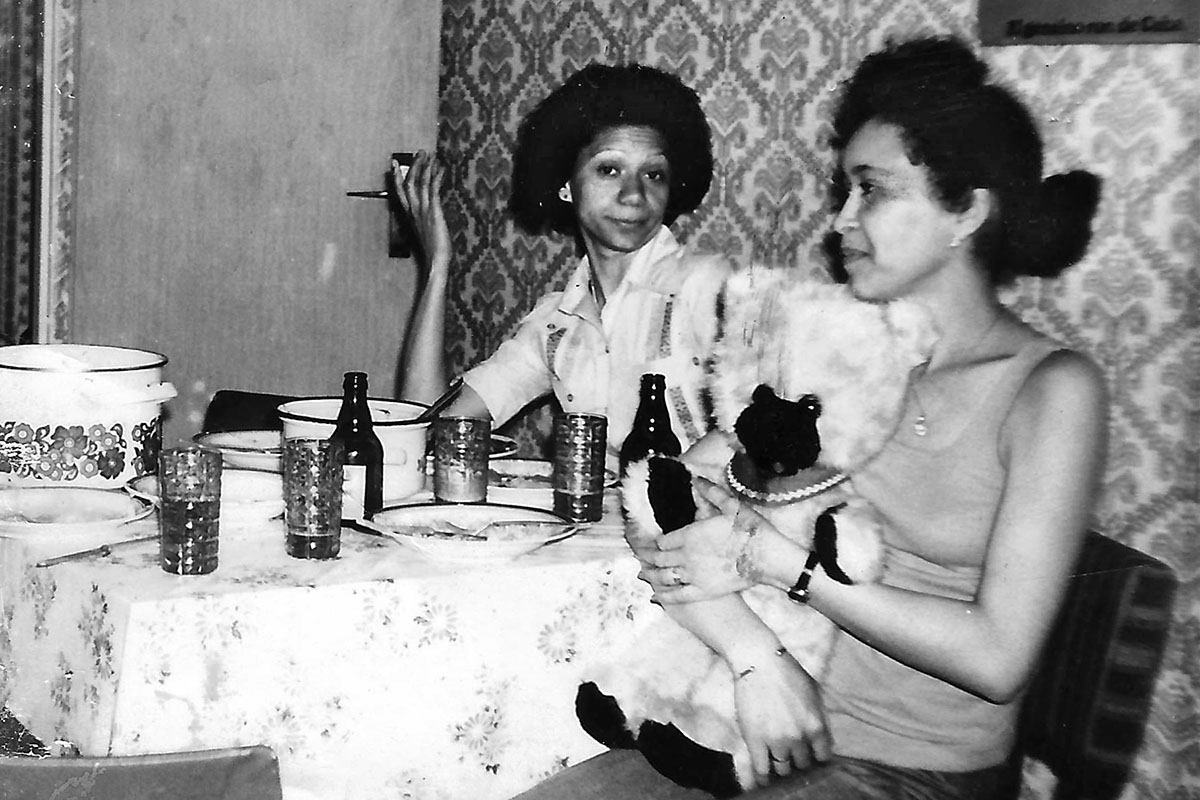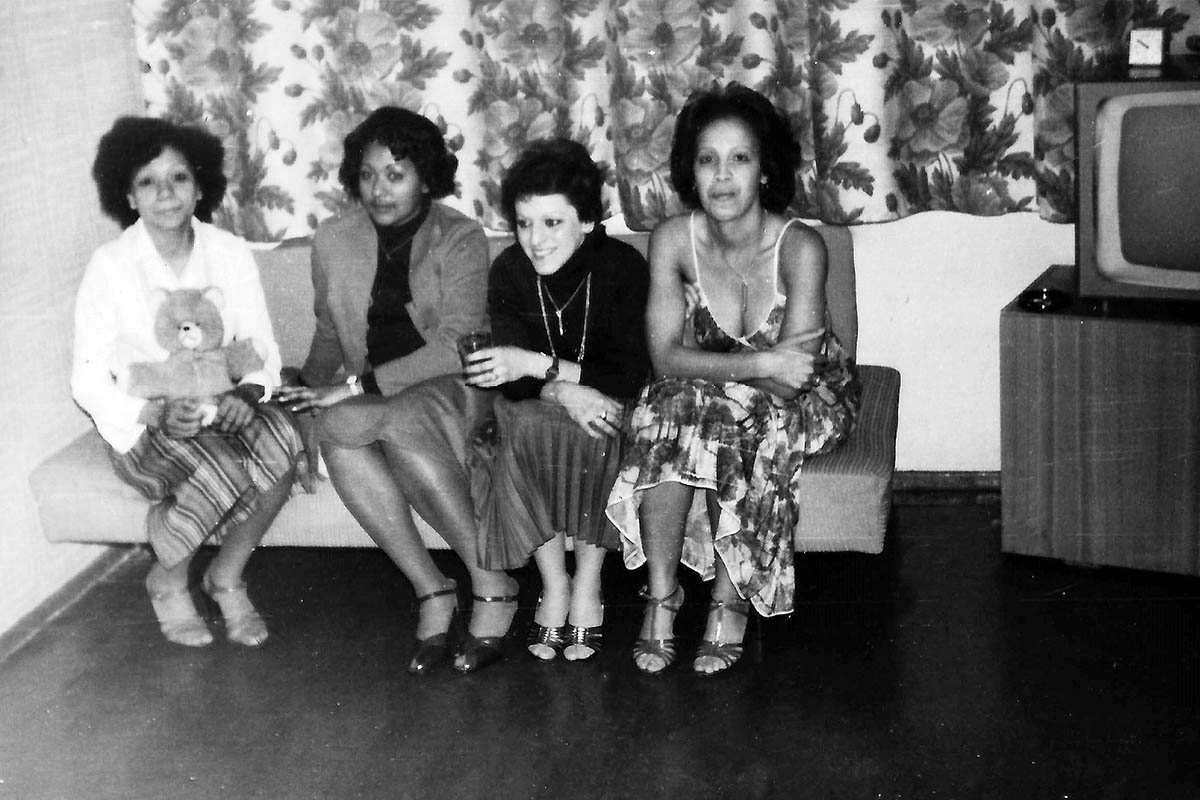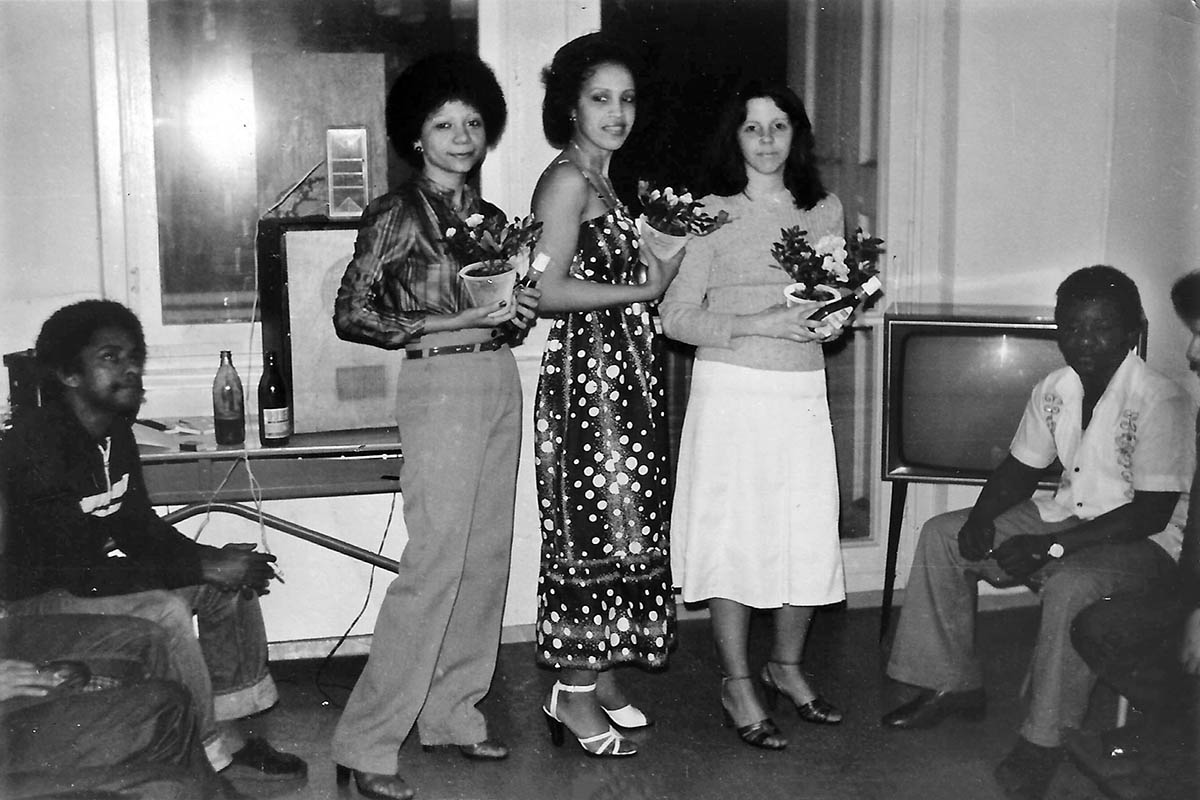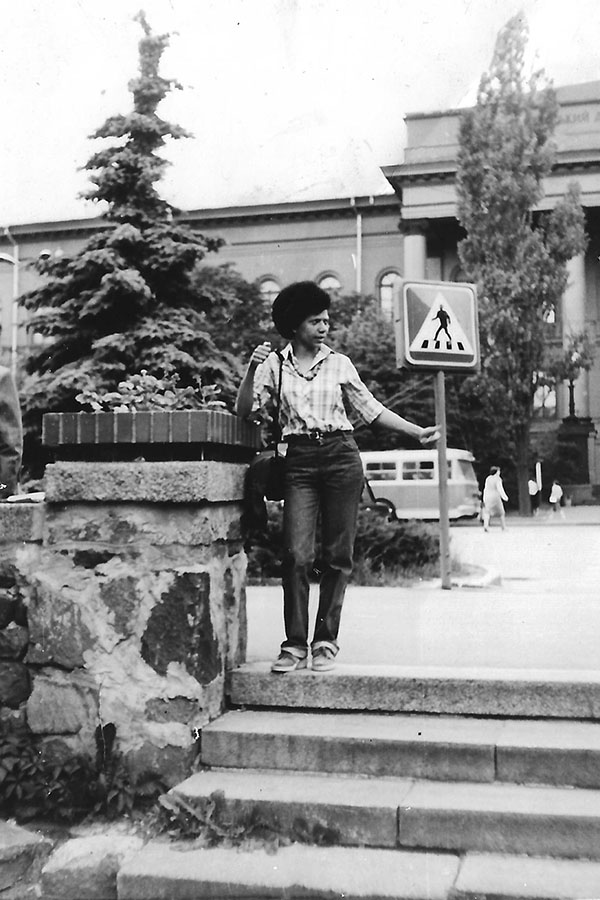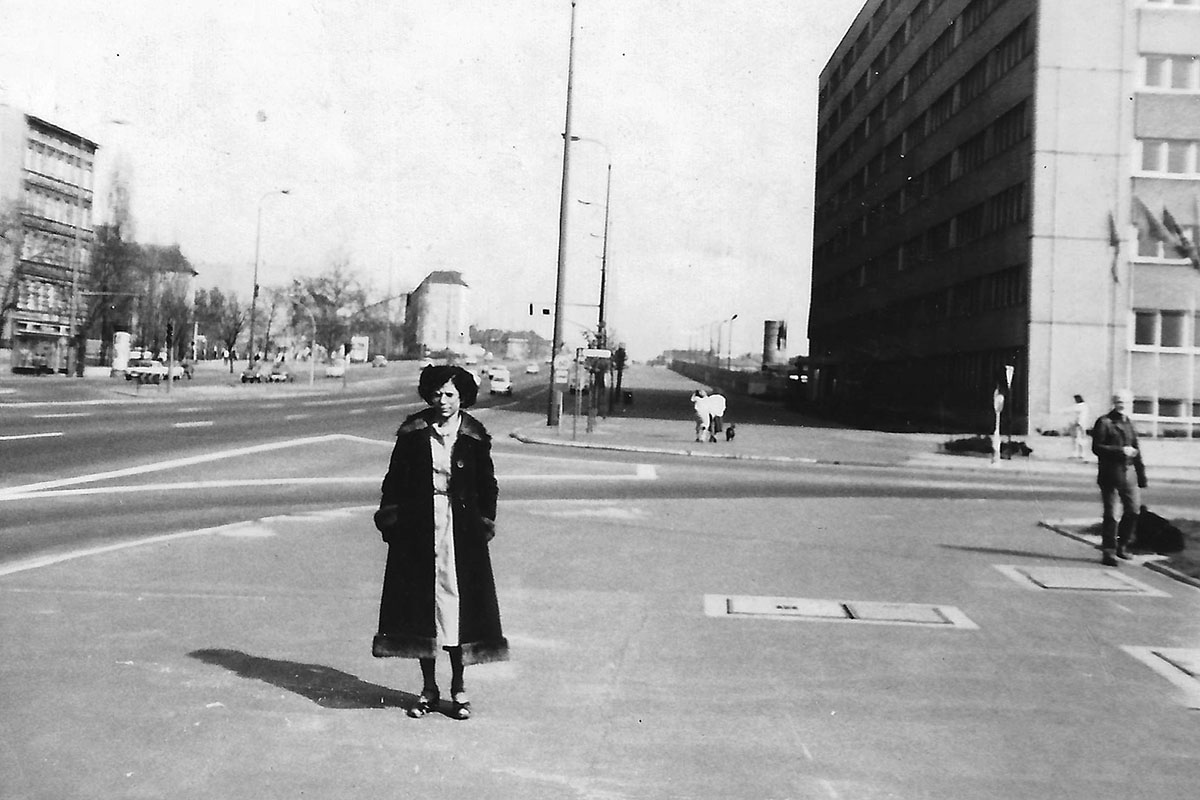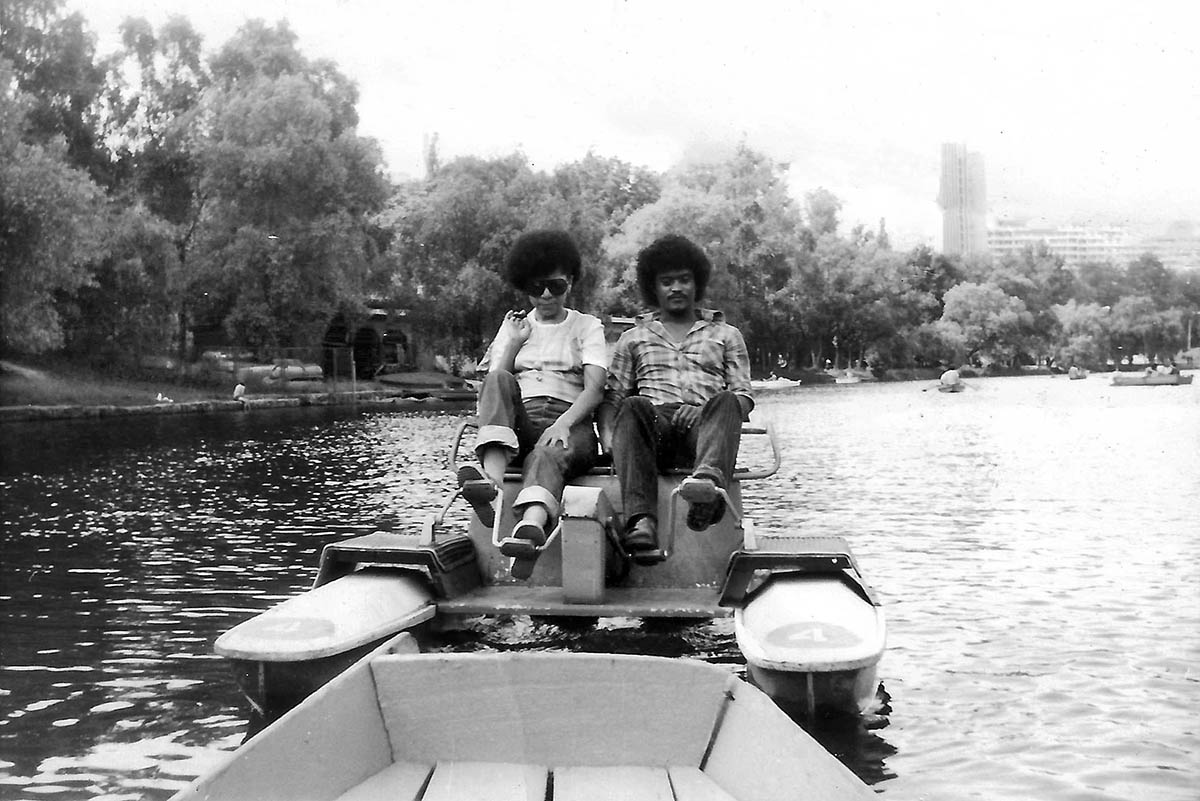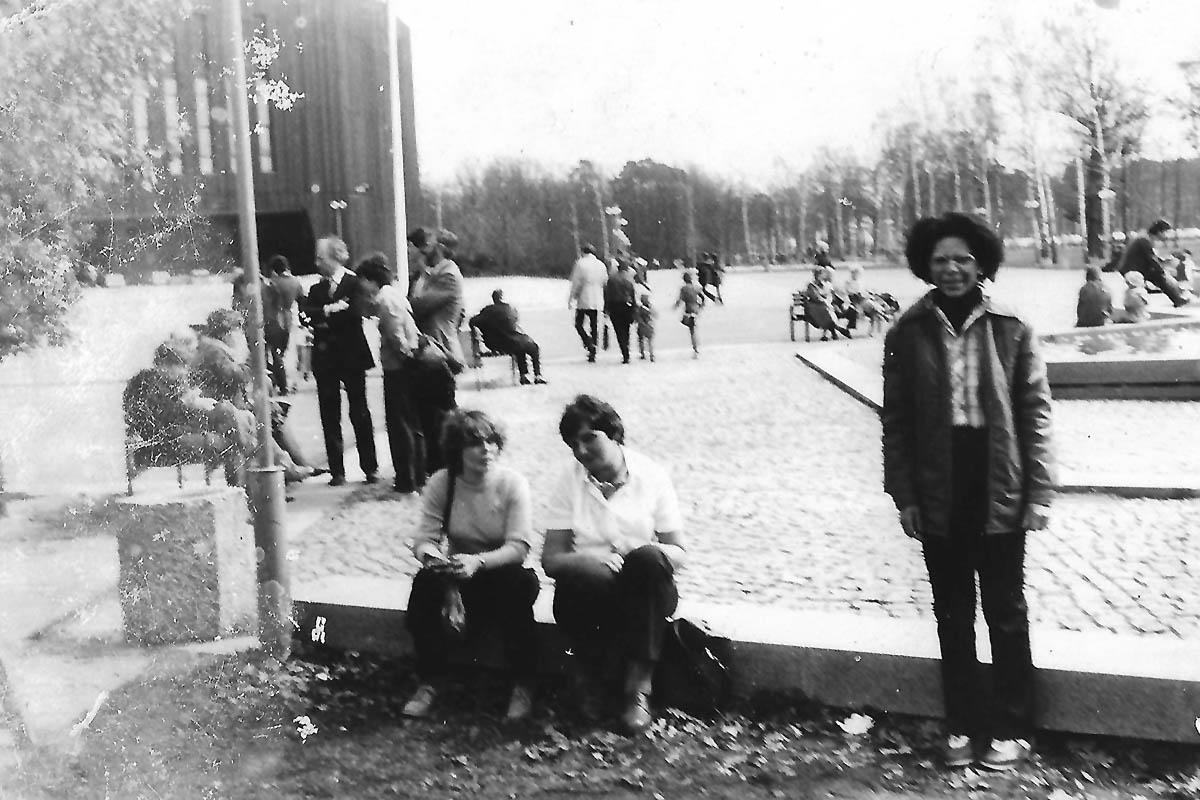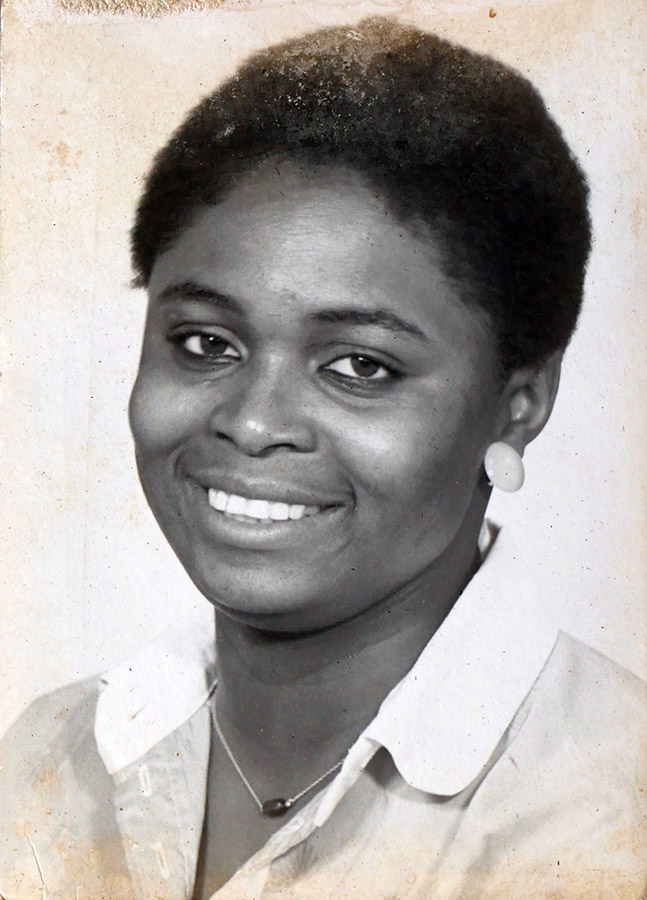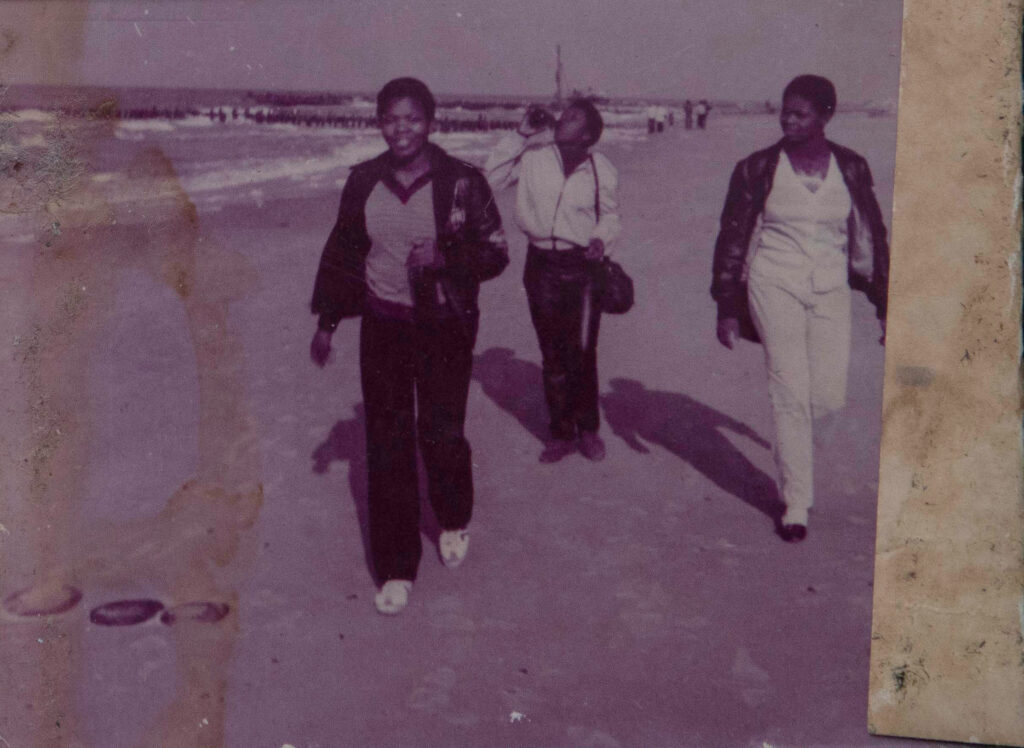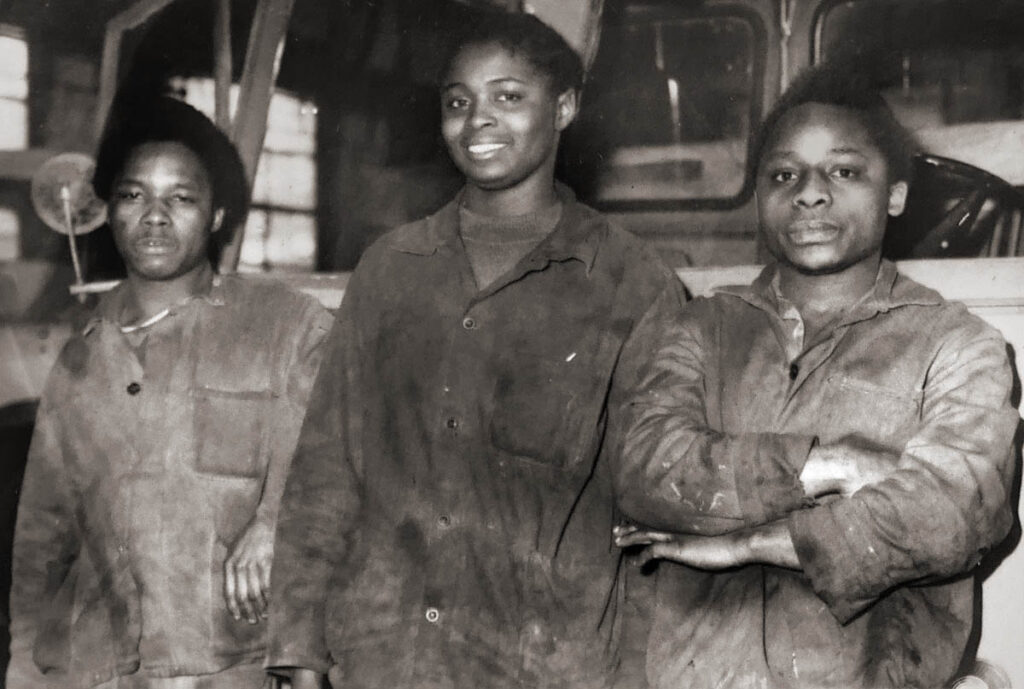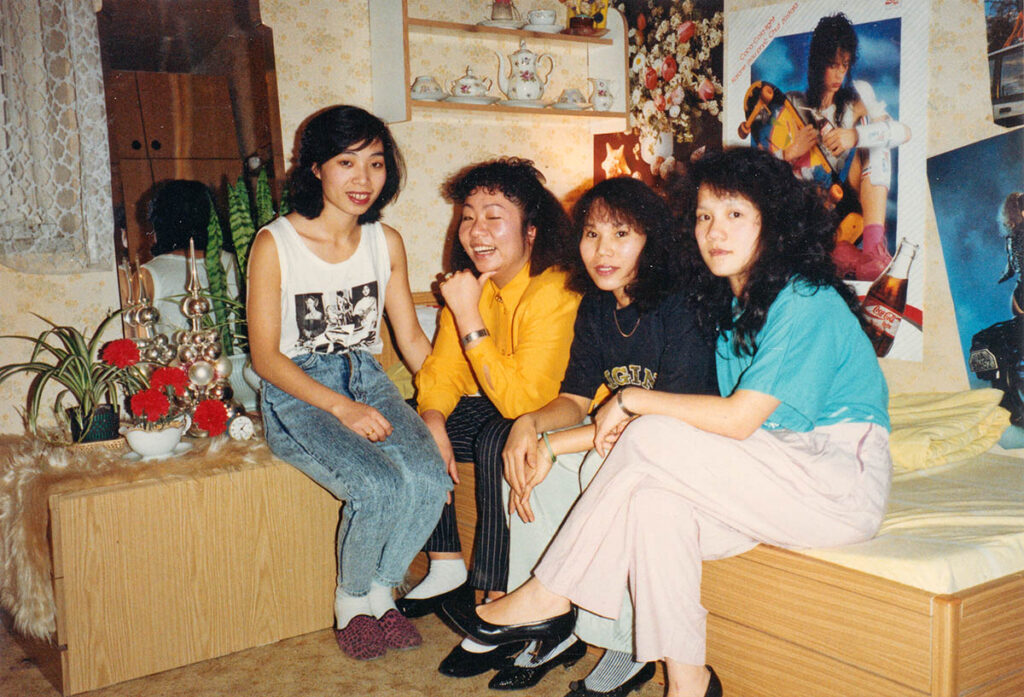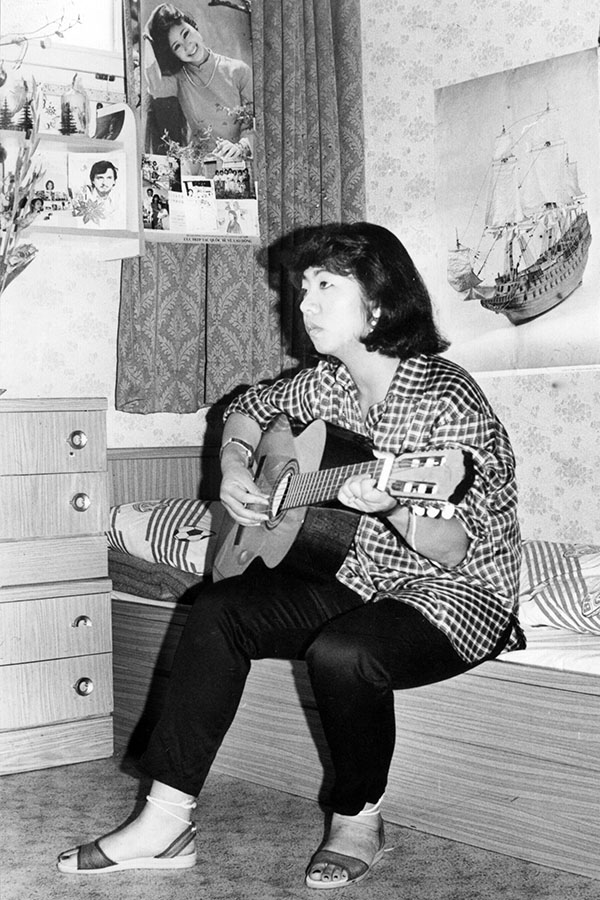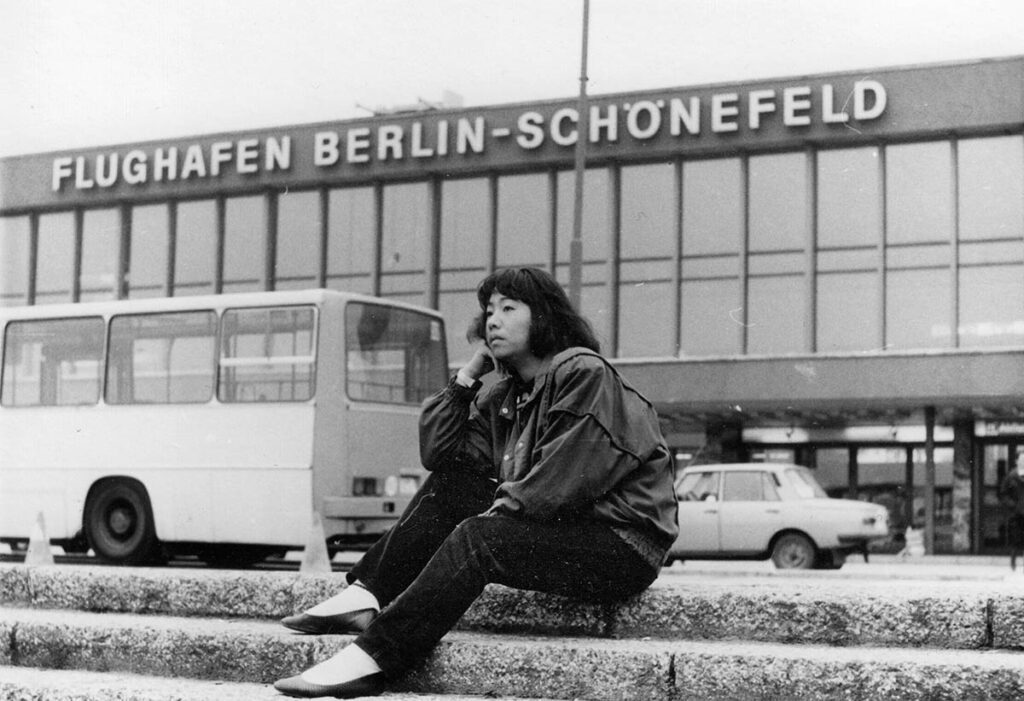Esmireldis Navarro de la Cruz
Following a traffic accident, Esmireldis Navarro cannot continue her studies in Cuba. She has been ill for too long. But in 1978, another door opens up: she can go to East Germany. She hopes she can study there, but instead is assigned to work at the publicly owned “Joliot Curie” Vehicle Transmission Plant in Leipzig. In addition to that, she studies German at an adult education center.
From Guantánamo to Leipzig
Esmireldis Navarro’s parents are simple people. They fought in the Cuban guerrilla, and then settled in the countryside in Guantánamo. From early on their daughter is independent. She takes her education in her own hands. In the GDR she arrives rather by chance: following an accident, she is forced to abandon her studies in Cuba. In Juventud Rebelde, the newspaper of the Communist Youth League, she reads about the possibility of going to Est Germany. She hopes that she can continue her studies there. Initially she hides the application from her parents, but eventually they let her go. At the age of nineteen she leaves Cuba.
First she is sent to Halle to work in the chemical industry. Her skin reacts with allergic rashes to the extreme environmental pollution in the region. Just three weeks later she is dispatched to Leipzig, where the air is a little better. Instead of studying or designing fashion, she learns how to operate industrial machines at the VEB “Joliot Curie” Vehicle Transmission Plant.
Arriving with dolls and posters
The German supervisors welcome the Cuban migrant workers with warm coats for the winter. The reception room is adorned with photos of Fidel Castro and others depicting the friendly relations between the GDR and Cuba. There are four women in Esmireldis’ group. Together they move into a flat in the residential home. Posters with the famous photo of the Cuban revolutionary hero Che Guevara—also popular in the GDR—hang on several walls. Esmireldis has brought her dolls with her. The bond between the young women as well as familiar structures help them to get accustomed to their new surroundings.
Cooking together after work is the norm. They enjoy having their own kitchen and always invite colleagues and friends over.
I came to Germany very young, almost still a child. The first thing I bought was a soft toy.
Esmireldis Navarro, Havana 2021
Crossing borders
Esmireldis Navarro also finds German friends. A childless couple sets up a room for her in their own flat. Part of her spare time she spends with them. She feels like a surrogate daughter. Since the work in the factory is not what she had imagined, she attends German courses at the adult education center and eventually passes all exams up to the highest level.
She stands up against transgressions. Time and again strangers grab her hair. But she also receives racist attacks from people she knows. Esmireldis Navarro fights for respect.
Esmireldis Navarro erzählt von der Freundschaft mit einem deutschen Paar.
I think Germans should be more approachable, learn to live less solemn, less rigid.
Esmireldis Navarro, Havana 2021
Cultural exchange
The young Cubans are enterprising. They have parties, dance, try to inspire the German friends with their energy. Those are often too serious, too cerebral for them. What some East Germans consider a welcome exoticism is a natural part of life for Esmireldis Navarro. She wants to make the most of her time in the GDR and enjoy it. Likewise, she is interested in history and politics, takes part in youth meetings, in an excursion to Buchenwald, travels with a delegation to Kyiv. Exchange with Germans is important to her. She shares her culture with them, tries to dissuade them from the ideas of Cuba’s inferiority to the GDR.
Esmireldis Navarro zeigt Fotos von ihrem Alltag in der DDR.
Second career
Working as an industrial mechanic is challenging for Esmireldis Navarro. Even though it is not what she intended to do, she strives to do her best. At the end of her training at the plant her German proficiency lands her an attractive new job: in 1982, shortly before her contract in the GDR expires, she is given leave to attend a meeting of the Unión de Jóvenes Comunistas (Communist Youth League) in Cuba. On this occasion, her skills as a translator are discovered. Ultimately, she also translates for the Cuban State Council. She returns to the GDR, this time as a translator to Berlin. The demands made on her are now much higher. She has much more work and a more luxurious life.
Esmireldis Navarro berichtet von ihrer Arbeit und dem Wechsel nach Berlin.
Berlin was completely different, work was completely different, relationships were completely different.
Esmireldis Navarro, Havana 2021
Difficult homecoming
After four years in the GDR, Esmireldis Navarro joyfully returns to Cuba. She has achieved a lot: training as a skilled worker, employment as a translator. Furthermore she has found a Cuban partner in the GDR. She is looking forward to her country, to all the things she missed, right down to the heat in the overcrowded buses. After arriving in Cuba, it turns out that her future is uncertain. When she goes to pick up her training certificate, she is informed that she is needed as a translator and should go abroad again. For her, that is out of the question.
Esmireldis is upset, because she doesn’t know if her refusal could result in being denied her certificate. Once again, she has to start over: Through an acquaintance she gets a job as a cashier. The job does not match her qualifications, but it is a temporary solution. When there is a shortage of German translators in Cuba, she is remembered. In the end, she interprets for GDR delegations in Havana.
I think, in retrospect, Germany marked a radical change in my life.
Esmireldis Navarro, Havana 2021
Esmireldis Navarro is a pensioner living in Havana.
Credits:
Elaine del Valle Cala conducted the interview in Havana in 2021.
Text: Isabel Enzenbach
Research and research protocol photos: Elaine del Valle Cala, Isabel Enzenbach
Video edting concept: ha Isabel Enzenbach
